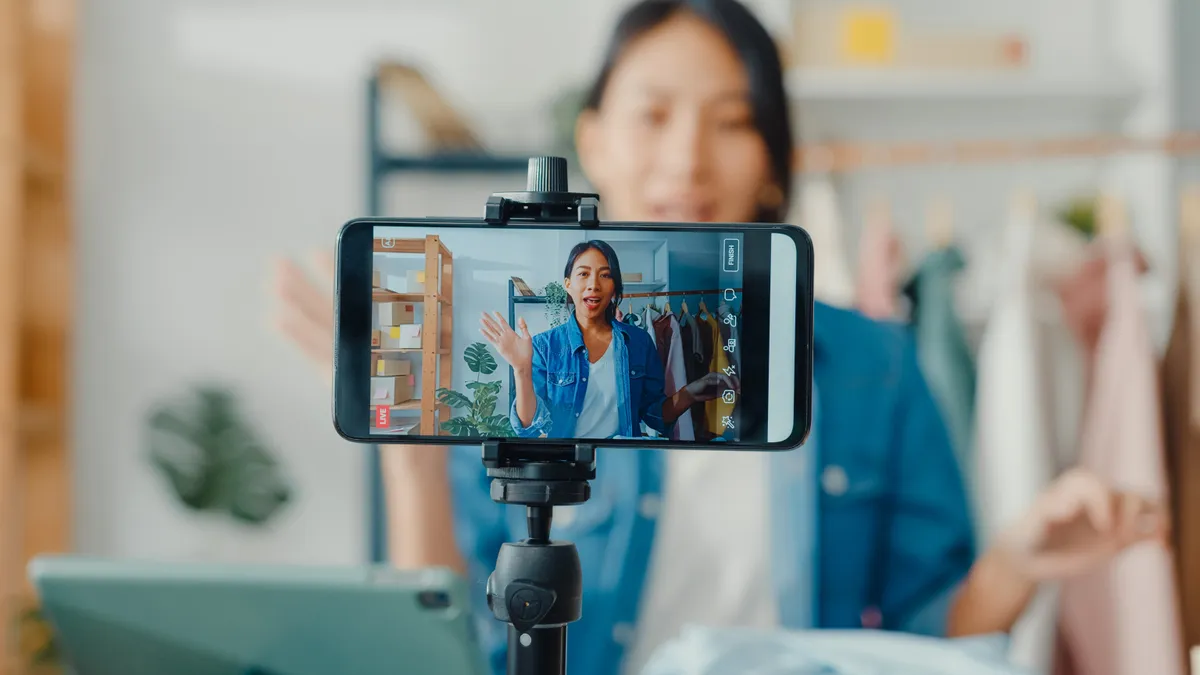Dive Brief:
- More than a quarter of consumers and a majority of Gen Z consumers have bought a gift based on an influencer’s recommendations, according to a Mavely survey of 1,000 U.S. consumers released Thursday.
- Younger generations are most influenced by consumers, with nearly 3 in 5 Gen Z consumers saying they trust recommendations by local or micro-influencers.
- “The data shows that actually all consumers are actually increasing their trust in influencers. Gen Z's are just doing it at the highest rate,” said Evan Wray, CEO of Mavely. “The bigger reason, from a Gen Z perspective, is they’re social natives. It's the first generation that really grew up with social media, and as a result, the habits of searching Google aren't as seamless as what they grew up with — searching Tiktok, searching Facebook.”
Dive Insight:
Consumers turn to trusted sources when making purchasing decisions, whether that be family and friends, customer reviews or influencers.
Influencers, especially those who create online communities around specific interests, are becoming a bigger source.
“Looking at micro- and nano-influencers, they are extremely niche,” Wray said. “So they're very good at certain topics or trends and then become a trusted source, specifically for a Gen Z audience.”
Wray provided an example of a teacher who became an influencer. Because of her experience as a teacher, her dedication to her followers and her refusal to promote brands or products she doesn’t think highly of, her classroom product suggestions are considered reliable.
“Because they are more relatable, because they are more trustworthy, they can actually drive higher conversion rates and higher engagement rates,” Wray said.
While consumers’ trust in influencers is growing, the survey found the most-trusted sources are friends or family and customer reviews on a retailer’s website. Reviews and recommendations from family and friends are also the top motivators for holiday gifts.
But to Wray, more influencers are treated as an online extension of that friend and family category.
“What's happening for all generations, but specifically for Gen Z, is these niche influencers can be viewed as friends because people are interacting with them like they're responding to your DMs,” Wray said.

















